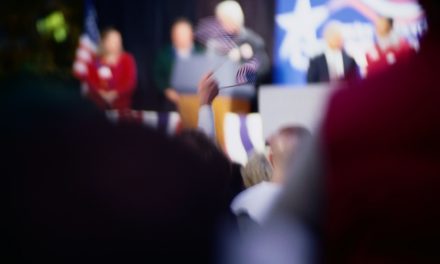Writing nonfiction about movements and people is as old as the Bible and the Guttenberg printing press. The American transcendentalism movement found purchase in the 19th Century and lost momentum by the turn of the last century.
Trump emerged in American politics in 2016 and was disembarked in 2020. His movement, cleverly known as MAGA translates to Make America Great Again. He and his people used it as a campaign slogan from 2016 until 2020. It didn’t work but it made fast friends and bitter enemies for about five years.
American transcendentalism was a practice favoring a world where facts and the categories of common sense were temporarily exchanged for the world of ideas and the categories of imagination. Emerson and Thoreau are the two most significant nineteenth century proponents of American transcendentalism.
While the connections between Trump’s movement and Transcendentalism are vague and in need of fact-checking, the stringline is obvious. Transcendentalists were immune to facts but were very imaginative. Trump loathed facts and loved everything he imagined, especially if it allowed him carte balance with women, taxes, debts, foreign friends, promises, and the truth.
Transcendentalism fathered a literary and asserting the existence of an ideal spiritual reality that transcends empirical and scientific reality and is knowable through intuition. Trump fathered a rally-based, red-hat-wearing, give ‘em hell, political machine that would eventually outshine its deviant predecessors.
Arguably, Tammany Hall, the Democratic Party machine, a major role in controlling New York City and New York politics. It helped immigrants, most notably the Irish, rise up in American politics from the 1790s to the 1960s.[1] Trump’s MAGA political machine rejected immigrants, most notably Muslims and Mexicans, and worked hard to wall off this country from them.
The Byrd Machine was a political machine of the Democratic Party led by former Governor and U.S. Senator Harry F. Byrd (1887–1966) that dominated Virginia politics for much of the 20th century. From the 1890s until the late 1960s, the Byrd Organization effectively controlled the politics of the state through a network of courthouse cliques of local constitutional officers in most of the state’s counties.[2] Trump tried to do that in New York, but eventually gave up and moved to Florida. MAGA thrives in Florida.
Huey Pierce Long Jr. nicknamed “the Kingfish”, was an American politician who served as the 40th governor of Louisiana from 1928 to 1932 and as a United States Senator from 1932 until his assassination in 1935. He was a left-wing populist member of the Democratic Party and rose to national prominence during the Great Depression for his vocal criticism of President Franklin D. Roosevelt and his New Deal, which Long deemed insufficiently radical. As the political leader of Louisiana, he commanded wide networks of supporters and often took forceful action.[3] Trump was a right-wing populist, who vocally criticized Barack Obama and Joe Biden, whom he deemed insufficiently conservative. He thought they were the swamp and promised his people he would drain them.
Transcendentalists believe in intuition. They thought they had the power to learn from outside through their five senses and inner world by intuition. In essence, they could make up their own facts and believed that what they said was true, even if it was not “factually” true. Trump believed what he said was true, even where it was blatantly false. And if he said it, his people believed it. Together, they made up their own truth.
The most recent and unflappable belief by Trump, and by extension, his people, is that he won the election because he could not have lost it. If the vote counters said differently, they were wrong and must have conspired to steal the election, which they believe, in the absence of any evidence that the Democrats stole it from him, especially in Republican states.
Trump is a transcendentalist in disguise. They never wore red hats. He does. Maybe that makes him a born-again transcendentalist. Its main ideals were based around nature, nonconformity, and individualism. This movement still exists. He is the ultimate individualist. He conforms to nothing vaguely resembling honesty, integrity, or immigration. But he plays golf—that gets him out of his mansion and on the golf course.
All that said, it is the case that Trump is as anti-transcendentalism as a Russian oligarch, which is what he’d really like to be. Transcendental ideals are relevant to transcendentalists, but no longer valued in modern American life. They were against materialism. Trump wants to acquire, control, and live a garish lifestyle. Transcendentalists live minimally. He lives grandiose.
Transcendentalism was 19th-century school of American philosophical thought. Trump is anti-philosophical thought. His post-election reality will likely dissolve his near- monolithic control over GOP. His hard-core base appears is shrinking. He cannot control pink or blue primaries. And his dominant message—someone stole my election—is DOA in all American courts.
As for ethical behavior, no one ever accused him of it. He transcends ethics.
[1] https://en.wikipedia.org/wiki/Tammany_Hall
[2] https://en.wikipedia.org/wiki/Byrd_Machine
[3] https://en.wikipedia.org/wiki/Huey_Long

I am an author and a part-time lawyer with a focus on ethics and professional discipline. I teach creative writing and ethics to law students at Arizona State University. Read my bio.
If you have an important story you want told, you can commission me to write it for you. Learn how.






 I am an author and a part-time lawyer with a focus on ethics and professional discipline. I teach creative writing and ethics to law students at Arizona State University.
I am an author and a part-time lawyer with a focus on ethics and professional discipline. I teach creative writing and ethics to law students at Arizona State University.  My latest novel is Hide & Be.
My latest novel is Hide & Be.  If you have an important story you want told, you can commission me to write it for you.
If you have an important story you want told, you can commission me to write it for you.